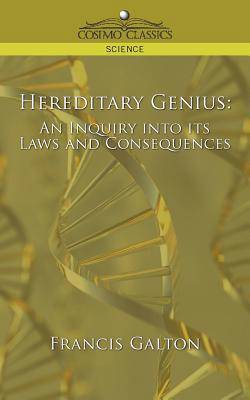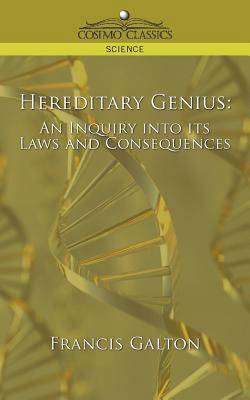
Bedankt voor het vertrouwen het afgelopen jaar! Om jou te bedanken bieden we GRATIS verzending (in België) aan op alles gedurende de hele maand januari.
- Afhalen na 1 uur in een winkel met voorraad
- In januari gratis thuislevering in België
- Ruim aanbod met 7 miljoen producten
Bedankt voor het vertrouwen het afgelopen jaar! Om jou te bedanken bieden we GRATIS verzending (in België) aan op alles gedurende de hele maand januari.
- Afhalen na 1 uur in een winkel met voorraad
- In januari gratis thuislevering in België
- Ruim aanbod met 7 miljoen producten
Zoeken
€ 27,45
+ 54 punten
Uitvoering
Omschrijving
I have no patience with the hypothesis occasionally expressed, and often implied, especially in tales written to teach children to be good, that babies are born pretty much alike, and that the sole agencies in creating differences between boy and boy, and man and man, are steady application and moral effort. It is in the most unqualified manner that I object to pretensions of natural equality. The experiences of the nursery, the school, the University, and of professional careers, are a chain of proofs to the contrary. -from "Classification of Men According to Their Natural Gifts" One of the greatest names in Victorian science, Francis Galton has been all but forgotten in the popular culture, but his work on philosophy of genetics and the inheritability of human characteristics broke new ground in the late 19th century. With this 1869 book (along with his 1889 work Natural Inheritance), he founded an entirely new scientific discipline, one that approached human biology with a systematic rigor as he explored the degree of "eminence" among British men and determined that intelligence and accomplishment were inheritable. Though some of Galton's work has been dismissed because of its causal connection to the deplorable applications of eugenics programs in the 20th century, this remains an important work in the history of biological science. "I do not think I ever in all my life read anything more interesting and original" Charles Darwin said about this extraordinary book. Among his many significant accomplishments, British scientist SIR FRANCIS GALTON (1822-1911) was an explorer, a geographer, a statistician, and inventor of fingerprint identification. In addition to more than 300 scientific papers, he wrote the books Narrative of an Explorer in Tropical South Africa (1853), Finger Prints (1893), Memories of My Life (1908), and others.
Specificaties
Betrokkenen
- Auteur(s):
- Uitgeverij:
Inhoud
- Aantal bladzijden:
- 432
- Taal:
- Engels
Eigenschappen
- Productcode (EAN):
- 9781596057692
- Verschijningsdatum:
- 1/12/2005
- Uitvoering:
- Paperback
- Formaat:
- Trade paperback (VS)
- Afmetingen:
- 127 mm x 203 mm
- Gewicht:
- 467 g

Alleen bij Standaard Boekhandel
+ 54 punten op je klantenkaart van Standaard Boekhandel
Beoordelingen
We publiceren alleen reviews die voldoen aan de voorwaarden voor reviews. Bekijk onze voorwaarden voor reviews.









